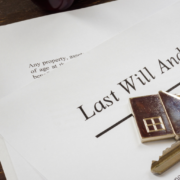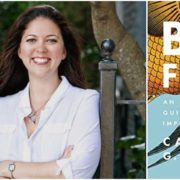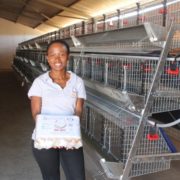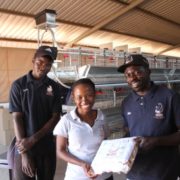The 101 of dying when you’re a Homeowner — Lionesses of Africa
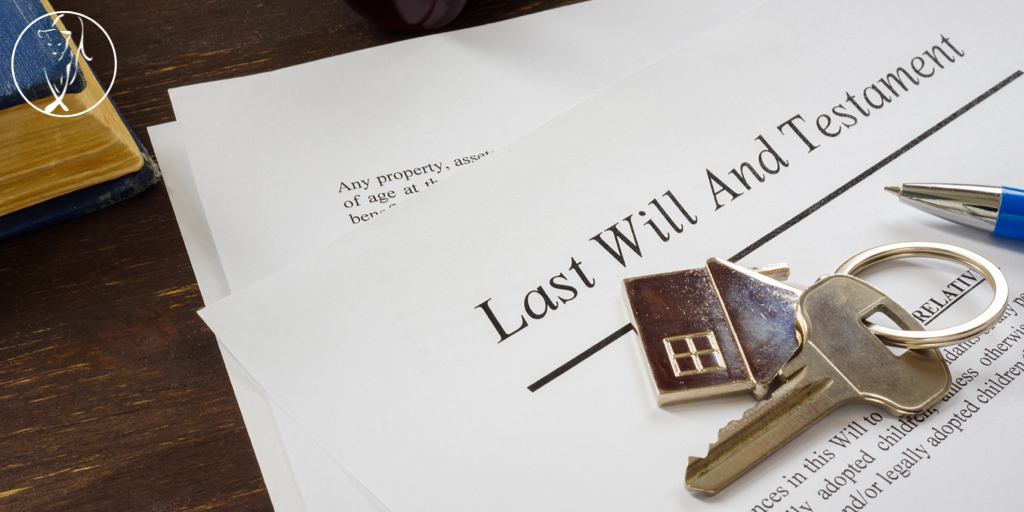
by Sinal Govender and Claire Keet, cofounders of life.file in collaboration with property specialists, Araujo Attorneys
Buying a property usually involves a bit of creative thinking. You walk into a show house and start to imagine it as a home – your home. Your mind’s eye paints feature walls, open plans the kitchen and pictures your life – and all its big, happy moments – unfolding in the space. The last thing you’re likely to be thinking is: “what happens if I buy this home and then… die?”. People don’t like to think about and plan for the worst bits of life, like dying. (Who can blame us?!). But death and property ownership is a pretty big deal that we just don’t talk about enough. If you own property, or plan on entering the market, here are some of the most important things to know about kicking the bucket when you’re a homeowner…
So, what happens to my property if I die without a Will?
It’s actually pretty simple – if you die without a valid Will, your estate (and any properties in it) will be divided up according to the rules set out in our law. (A quick sidenote: your “Last Will and Testament”, usually just called your Will, is a legal document that says how, when and to whom your assets get dished out when you die. The people who inherit your assets are called beneficiaries. The assets you accumulate in life might include things like property, money, art, cars and businesses). South Africa’s rules say that if you die without a valid Will, everything you own will go to your spouse and kids. There’s even a formula to help figure out how much each beneficiary will get of what. If you don’t have a living spouse or kids, then your parents will get everything. If you don’t have parents anymore, then your siblings will get everything. If you die without a Will, your property will either be transferred to your beneficiaries (these are the people set out in the rules above, like your spouse or kids or parents) or it will be sold to cover your outstanding debt. But wait, the plot thickens… if you have no known blood relatives when you die, all your assets will go into a State run guardian’s fund. If your assets aren’t claimed within 30 years they are forfeited to the state. Your main takeaway should be this: if you die without a Will, you have no control of who will get your property when you’re six feet under.
And what happens to my property if I die with a Will?
This is exactly the position you want to be in when you die. (And your loved ones will thank you for it too). The great part about dying with a valid Will in place is that your property will be transferred to the person or people who you left it to in your Will. Easy peasy! If the property is not specifically mentioned in the Will, but you have left your entire estate to, say, your two children then the property would go to the two of them, in equal shares.
What can my loved ones expect from the actual process of inheriting my property?
Hang onto your hat… it’s quite a process with some really important information along the way.
Step One: Once you’ve died, quite quickly your Executor will need to be formally appointed. Remember, your Executor is the person who you have (hopefully) appointed in your Will to wrap up your estate admin. If you die without a Will, then the people inheriting from you will have to choose an Executor. Once you’ve died, your Executor is “officially” appointed by the Master of the High Court by the issuing of Letters of Executorship. It’s now their job to take control of your estate assets and share them out accordingly.
Step Two: The next thing that gets done is that the estate (aka, your worldly possessions and debt) is reported by your Executor to the Master of the High Court in the area you were living 12 months before you died. It’s really, really important to know that at this stage, your estate is frozen. This means that no one can withdraw funds from your bank accounts or deal with any of the estate assets without permission from the Master of the High Court.
Step Three: Your Executor will draw up what’s called a Liquidation & Distribution Account or L&D Account. This is basically just a list that describes all of your assets (things or money that you own) and liabilities (things or money that you owe to others). The more organised you are before you die, the better. Making a list sounds easy, but it can take forever if your affairs are a shambles. (Imagine your loved ones trying to hack into your devices to figure out who you have accounts with. Or sifting through piles of paper trying to find your vehicle registration documents). Once the L&D Account is up to date, it’s now your Executor’s job to make sure that your assets are shared correctly and that all your debt is paid off. It’s at this point that your Executor will contact family members to tell them about inheriting your property.
Step Four: The L&D Account is then submitted to the Master of the High Court for approval. It must be done within six months of your Executor being officially appointed. (Unless your Executor applies for, and is granted, an extension). Once it’s been approved, the L&D Account then has to “lie for inspection” for 21 days once the Master has approved it. This basically means that any people you might owe money or assets to can raise their concerns during this period of “inspection”, before things are well and truly wrapped up. The more organised you leave your affairs, the less chance there is of any surprises during this period of inspection.
Step Five: If no one raises their hand during the period of inspection, and all is well with your L&D Account, then your beneficiaries will be paid. It’s also at this stage that the transfer of your property can take place. A conveyancing attorney will then attend to the transfer of the property into the name of the beneficiary. This will take the usual transfer period of approximately 3 months. It’s important to remember that transferring property is not a free exercise – the conveyancing attorney will also need to be paid.
What if I still owe the bank money on the property? Will my beneficiaries inherit my debt?
The answer to these questions depends very much on your personal circumstances. For instance, if you have insurance to cover your bond when they die, then your loved ones will usually inherit a property that has been paid off. Or, if you die with lots of extra money in your estate, then the bond can be paid off by your Executor. In situations where there isn’t money in your estate to cover the bond, your Executor will need to sell the property. Your loved ones will then inherit whatever money is left once the bank has been paid what is owed to them.
What happens if I leave one property to multiple beneficiaries? i.e. If I leave my holiday home to my three children. Do they each get an equal say in what happens to the property?
If you leave your home to three beneficiaries then yes, they will need to decide between themselves what will happen to the property. Either they each inherit an equal share in the property or they can choose to sell the property and inherit the money made from the sale. In a situation where one of your children wants to keep the property but the others would prefer the cash, they can all enter into what’s called a Redistribution Agreement. This agreement would say that one child would inherit the property and that the other children would inherit other assets or cash amounting to the same value as the property. If a Redistribution Agreement includes a property, it must be in writing. Your executor would help your children with this.
What happens if the people I leave my property to don’t want it or can’t afford it?
If this was the case, the Executor would sell the property and your beneficiaries would inherit the proceeds of the sale. Your beneficiaries can, of course, also just inherit the property and then put it onto the market at a later stage themselves.
Who pays the rates and levies during the time between when I die to when my beneficiaries take over the property?
Any rates and levies will be paid by your Executor from your Estate, as long as there is enough money in the estate. Once the property transfers to your beneficiaries, it’s on them to pay the rates and levies as the new owners of the property.
What will my beneficiaries wish they’d known sooner about inheriting property?
First, it is really important that your beneficiaries know about the running costs of your property – so things like rates, levies and any special levies. It is important that they know whether they can afford the running and maintenance of the property before becoming the owner so that it doesn’t become a big financial burden further down the line. Second, it’s important that they know that if your property is rented out that the lease does not just stop when the property transfers to their name. As the new owners, they would actually take over the lease agreement until the tenants give notice or finish their lease.
What property related documents will the beneficiaries of my property need one day when I die?
-
The Title Deed
-
The Notarial Deed (if there is an Exclusive Use Area registered like a Parking Bay or Garden)
-
A recent rates bill
-
A recent water and electricity bill
-
A recent levy statement
-
A copy of a lease agreement (if you have a tenant in your property)
Who would have these documents?
If there is a bond registered for your property, the bank will have the title deed and notarial deed. If there is not a bond registered for your property, then you should have these documents. These documents are critical for the transfer process. If your beneficiaries can’t find your Deed documents, then they’ll have to apply for a vault copy from the Deeds’ Registry Office. This process is what’s known as a Regulation 68 application. It will cost money and make the transfer process take longer. Motto of the story: get your ducks in a row. And make sure your beneficiaries and Executor know where to find them.
The long and the short of it is this:
-
Make sure that you have a Will.
-
In your Will, make sure that you leave your property to the people you want it to go to.
-
Make sure that your beneficiaries know what to expect from the process of inheriting your property – especially that it can take a long, long time, that there are costs involved and that they might struggle with cash flow while your estate is frozen.
-
Make sure that you’ve got your “ducks in a row”. There’s a lot of very important documentation that will be needed to wrap up your estate one day when you die. Make sure it’s up to date and that your beneficiaries know where to find it all.
This article was written by life.file in collaboration with property specialists, Araujo Attorneys.

